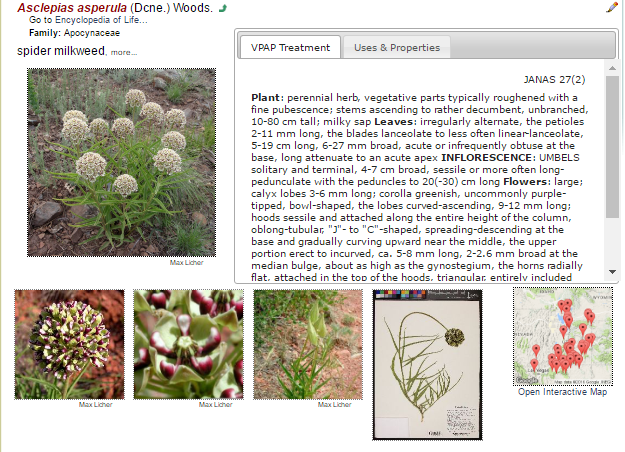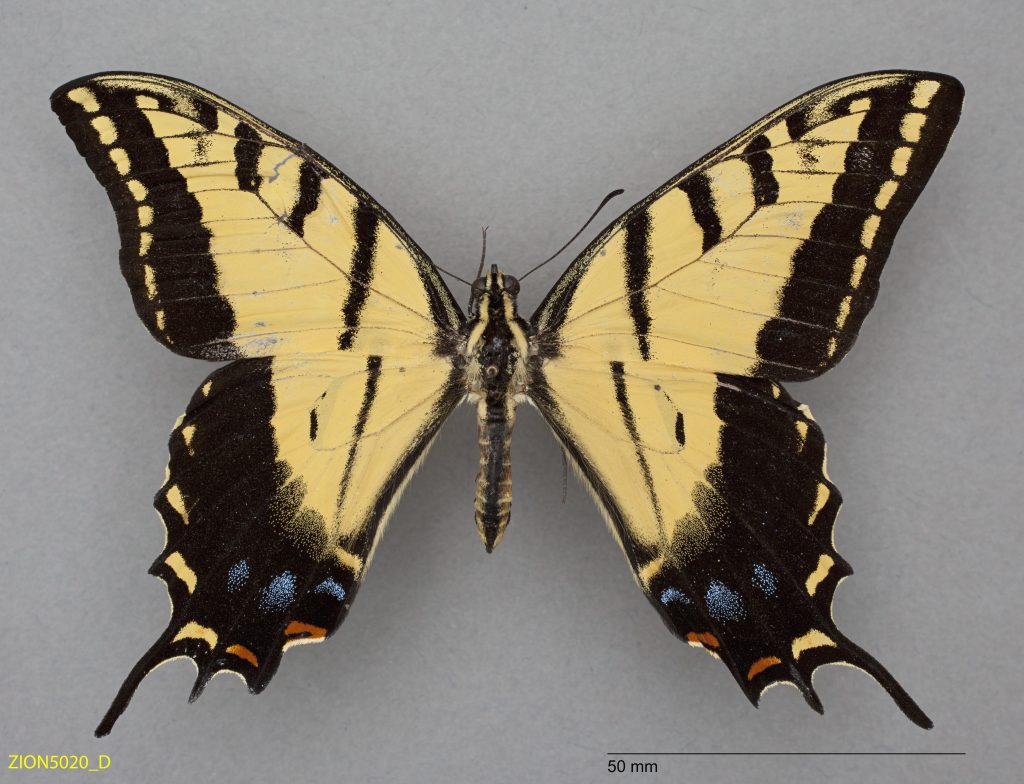The National Science Foundation awarded Northern Arizona University and Utah State University a three-year, $700,000 collaborative grant to improve the usability and accessibility of Symbiota, an online platform that allows natural history collections to share data, including images, for millions of biological specimens. Currently, Symbiota includes data for more than 37 million specimens from almost 800 collections.
The project, which is led by NAU’s Merriam-Powell Center for Environmental Research, will fundamentally restructure Symbiota, resulting in a new version of the software, Symbiota2. The changes, including providing new web services and creating a plugin architecture, were driven by feedback from current users. Symbiota2 seeks to increase the platform’s digital specimen records, expand its use by researchers, improve sustainability and enrich education and outreach activities.
“Some 86 percent of biological specimens in U.S. collections, or roughly 430 million specimens, have yet to be digitized and are largely unavailable to researchers,” noted Neil Cobb, the project’s principal investigator and director of the Merriam-Powell Center. “To speed digitization, this project is designed to make it easier for collections to integrate images with detailed specimen descriptions.”
Symbiota2 is an important next step in fully mapping all life on Earth and the interrelationships among living things. The ability for researchers to better understand how living things are connected to one another may present strategies for slowing biodiversity loss, developing new medicines, expanding crop production and maintaining ecosystem function.
In addition to improving research capabilities, Symbiota2 will support citizen scientists and science educators. Web-based learning modules that explore biodiversity and informatics concepts will be developed as part of this effort. The project also will include a K-12 education portal, which will use non-technical terminology to explore different ecology and conservation topics.
“Given the tremendous number of biological specimens that have yet to be digitized, Symbiota2 will create important new tools for unlocking data that may help to advance research,” said Thomas Whitham, Regents professor in NAU’s Department of Biological Sciences and executive director of the Merriam-Powell Center for Environmental Research. “This effort underscores the leadership role that NAU plays in collaborative networks working to advance biodiversity digitization and informatics.”

Symbiota2 is part of a larger biodiversity digitization effort lead by the Merriam-Powell Center that started with the Southwest Collections of Arthropods Network in 2012. In total, the National Science Foundation has provided more than $6.8 million to support 10 related projects. Symbiota2 is funded through the National Science Foundation’s Advances in Biological Informatics, Division of Biological Infrastructure.



